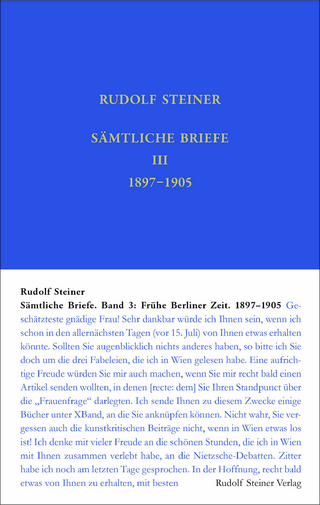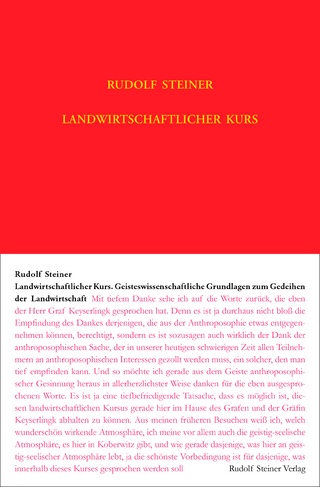
Understanding Society
Rudolf Steiner Press (Verlag)
978-1-85584-542-8 (ISBN)
Steiner speaks of the superficiality of the materialistic view of history, originating with the economic shift amongst the population at the time of the Reformation. Back in Egyptian-Chaldean times, initiates ruled out of spiritual impulses. Later, in the Greco-Roman period, priests had power over their congregations. Today, homo economicus – or `economic man’ – has become the dominant idea, with the capitalist and the banker taking control. But the healing of social relationships can only come about through different modes of thought; the life of spirit must be separated not only from politics but also from economics. True social understanding allows for comprehension of karma – the appreciation of each person’s individual destiny. In parallel, says Steiner, we should work towards a global consciousness, as true social ideas are founded on people feeling themselves to be citizens of the world.
In an important corollary, Steiner studies the incarnations of three significant spiritual beings in human evolution: Lucifer, Christ and Ahriman. Lucifer incarnated in the third pre-Christian millennium, Christ incarnated at the dawn of a new age, whilst an incarnation of Ahriman in the West is immanent. Ahriman is preparing this incarnation by insidiously promoting various ideas, for example that economic security is sufficient for healthy public life. A new wisdom must be achieved out of free human will, says Steiner, or else we will succumb to Ahriman.
Rudolf Steiner (1861-1925) called his spiritual philosophy 'anthroposophy', meaning 'wisdom of the human being'. As a highly developed seer, he based his work on direct knowledge and perception of spiritual dimensions. He initiated a modern and universal 'science of spirit', accessible to anyone willing to exercise clear and unprejudiced thinking. From his spiritual investigations Steiner provided suggestions for the renewal of many activities, including education (both general and special), agriculture, medicine, economics, architecture, science, philosophy, religion and the arts. Today there are thousands of schools, clinics, farms and other organizations involved in practical work based on his principles. His many published works feature his research into the spiritual nature of the human being, the evolution of the world and humanity, and methods of personal development. Steiner wrote some 30 books and delivered over 6000 lectures across Europe. In 1924 he founded the General Anthroposophical Society, which today has branches throughout the world.
| Erscheinungsdatum | 14.11.2017 |
|---|---|
| Reihe/Serie | The Collected Works of Rudolf Steiner |
| Einführung | Matthew Barton |
| Übersetzer | Matthew Barton |
| Verlagsort | East Sussex |
| Sprache | englisch |
| Maße | 155 x 235 mm |
| Themenwelt | Weitere Fachgebiete ► Anthroposophie |
| ISBN-10 | 1-85584-542-3 / 1855845423 |
| ISBN-13 | 978-1-85584-542-8 / 9781855845428 |
| Zustand | Neuware |
| Haben Sie eine Frage zum Produkt? |
aus dem Bereich


